Apr 01 2020
Overcrowding in Turkey’s prisons is rife, making social distancing, good hygiene, and other key measures to minimise transmission of the coronavirus in jails essentially impossible.
Recognising the problem, parliament is considering a law that would expand the criteria for granting early release to more than a third of the country’s 300,000 inmates. The draft law, however, excludes the thousands of journalists, opposition politicians, academics, lawyers, and activists held on charges of terrorism or crimes against the state.
“It is a wise decision by the Turkish government to release up to 100,000 people from prison due to the corona crisis,” Kati Piri, a member of the European Parliament, told Ahval. In her first term, Piri was the parliament’s rapporteur on Turkey’s EU membership process.
“However, keeping those in jail that pose no threat whatsoever to the public security is clearly politically motivated and evil. This is the time to make up for past mistakes, unite the country and release the political prisoners,” she said.
Turkey has witnessed many violent political attacks over the years, carried out by Kurdish and far-left groups, as well as jihadists such as Islamic State. But since coming to power in 2003, President Recep Tayyip Erdoğan and his Justice and Development Party (AKP) have cracked down on opponents of all shades, and a wide range of critics have been prosecuted and jailed.
“Turkey has real challenges with political violence,” Howard Eissenstat, an associate professor at St. Lawrence University and non-resident fellow at the Project on Middle East Democracy. “The problem is that Ankara has often elided actual political violence with a wide range of peaceful political activities.”
“This was true before the AKP came to power and the AKP has, in its turn, honed anti-terror prosecutions into a powerful weapon against all manner of political enemy, including journalists, civil society activists, and the leadership of the political opposition. The draft law continues this process and, potentially, makes it literally into a matter of life and death for political opponents behind bars,” he said.
“In Turkey, even the most moderate opposition can easily be fit into the terrorist category of the Anti-Terror Law,” Ömer Faruk Gergerlioğlu, a member of parliament for the opposition Peoples’ Democratic Party (HDP), told Ahval.
The bill before parliament could lead to serious risks for political prisoners, he said.
“If there is discrimination, and if political prisoners are kept in prisons during the coronavirus pandemic, then there will be very serious, painful stories about health rights violations of sick, elderly, and pregnant prisoners, prisoners with children, and other at-risk groups,” Gergerlioğlu said.
With prison capacity already overwhelmed, the draft law has been on the agenda for a year, but the government has now accelerated the process due to the coronavirus threat.
“These are prisons in a developing country, so the conditions are not that good,” Berk Esen, an assistant professor of international relations at Bilkent University, told Ahval. They are overcrowded due to political reasons, he said, “especially the conflict that the government has with some opposition groups.”
The prisons also lack resources and conditions are likely to deteriorate as the epidemic worsens Turkey’s economic downturn. On a normal day, Esen said, healthcare access for inmates is limited. “Given how rapidly the number of corona patients is on the rise in the Turkish context, they will probably have very limited access to healthcare.”
Along with fellow activists and human rights activists, Gergerlioğlu launched a petition campaign for political prisoners to be treated the same in the draft law. Normally, he said, petitions in Turkey garner 10,000 to 15,000 signatures. In less than a week the equality for early prisoner release petition has more than 70,000 signatures.
Gergerlioğlu said people continued to sign the petition and said the number of people signing was significant “in a period when there is a very large majority who are afraid to express their thoughts and sign campaigns”.
He said the ruling AKP and its far-right coalition partners had so far not been willing to compromise on the bill, but said the opposition had been able to get some concessions from the alliance in recent years. Although it will not be easy, Gergerlioğlu thinks that with support from the public the government position could be changed.
The draft law initially included the possibility of early release for sex offenders and those guilty of other violent crimes. But after a public backlash, sex offenders, murderers and a number of other convicted criminals will be excluded from early release.
“It makes more sense for the state to give amnesty on crimes committed against it and not for crimes committed against citizens. But the equality principle in the constitution probably prevents such a clear separation,” Esen said.
He suggested that to generate some positive coverage, Erdoğan could consider releasing political prisoners like Osman Kavala, a businessman and human rights defender who was recently re-arrested on widely criticised coup-related charges hours after being acquitted of terrorism charges.
“The ruling party is thinking about a reduction in sentences, but that’s also unfair in other ways,” Esen said. “Thinking of house arrest and other similar options could be an idea.”
Either way, Erdoğan is unlikely to embrace releasing thousands of inmates imprisoned in the crackdown on dissent.
“The logic motivating the AKP’s amnesty is sound, but at both a moral level and pragmatically, it would make more sense to use this crisis as an opportunity to end the ongoing purge of political enemies in Turkey than to focus on releasing potentially dangerous criminals,” Eissenstat said. “Unfortunately, that is not the government’s approach.”

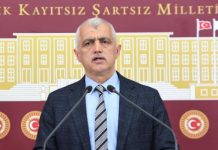
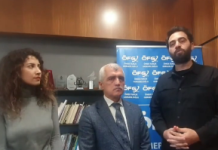
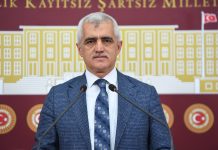
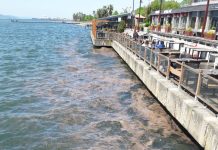



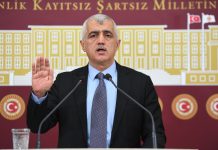
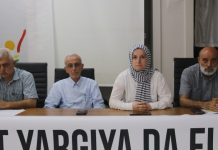


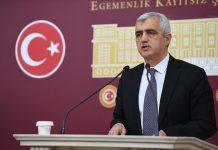
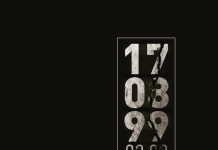
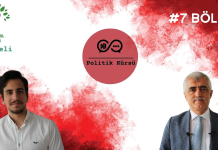

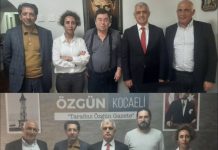



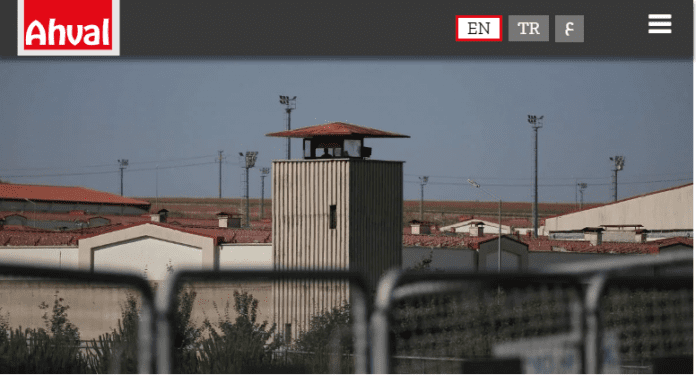



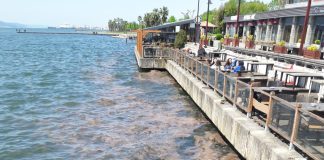

Yorumlar